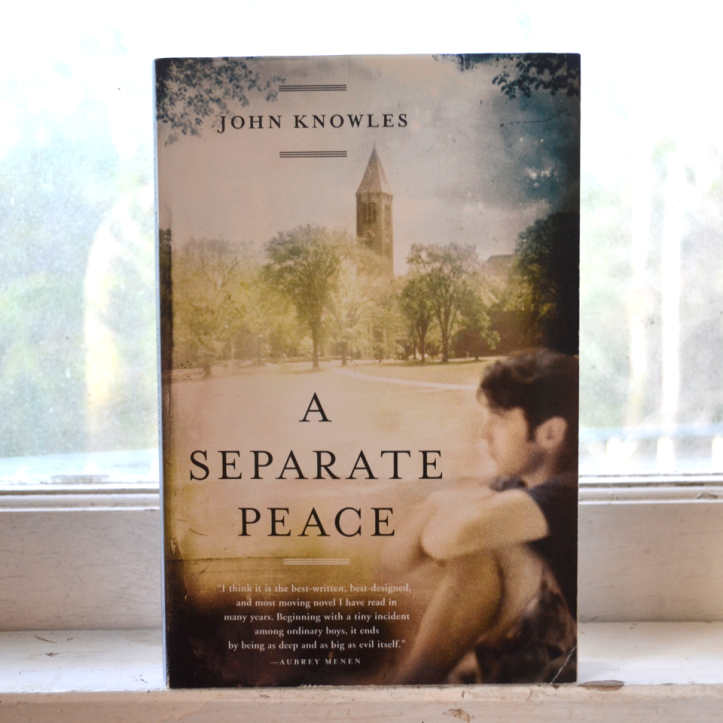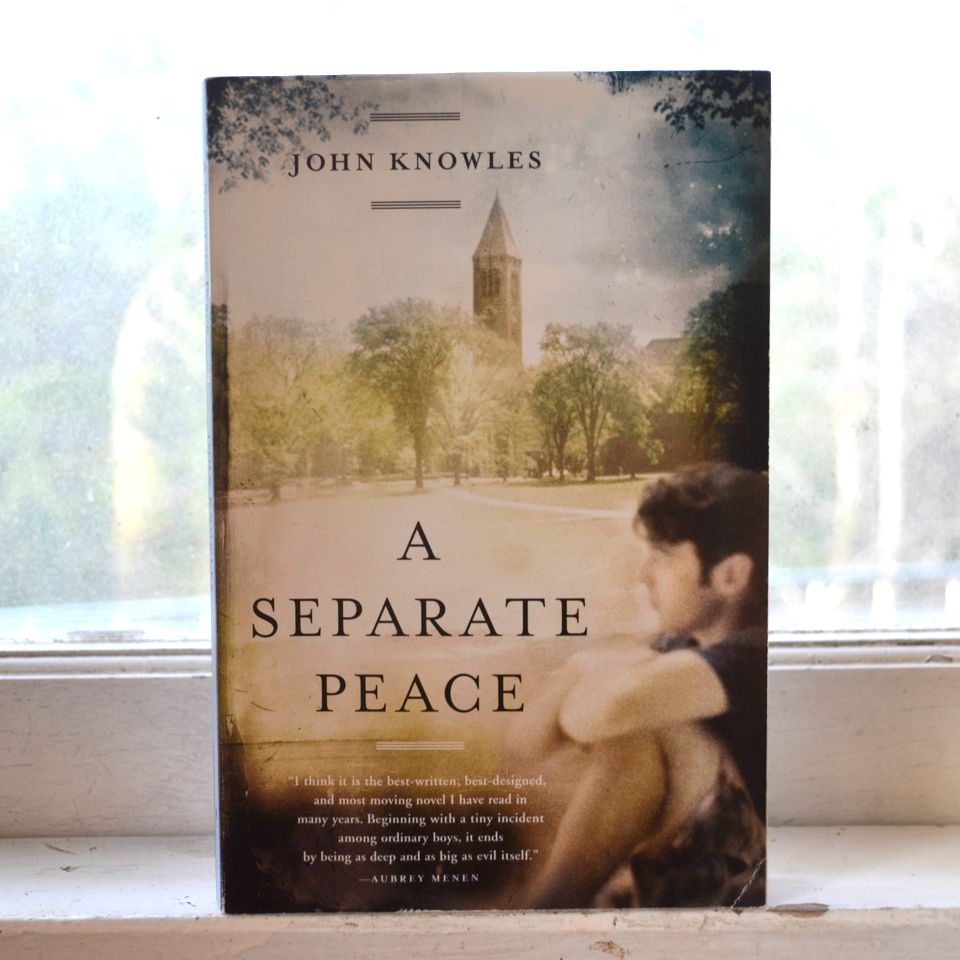A Separate Peace by John Knowles (1959). New York: Scribner.

It fascinates me how some novels can stand the test of time. Even after sixty years – and to me, primarily a YA reader – the narrative remains engaging, momentous, and touching. Knowles had me caught up in the story instantly, gifting such sharp insight into Gene’s mind that I wanted to keep up with his strange, youthful logic. And even though he was never fully fleshed out as a character (he barely existed beyond the confines of Devon), I found him an incredibly thrilling character to be inside.
Knowles didn’t let us stop to enjoy the scenery unless Gene was, and that’s something I admire in a writer. There’s a cinematic flow to it that made the mundane seem more interesting to Gene – or at least more familiar. It also made Gene a more believable character, as it made sense for Gene to be one of those boys who refused to consider what he felt. Any moment he stopped to think too long was a moment he had to discover something about himself he didn’t like. And I think one of his attractions to Finny was that he never had to have those moments while Finny was around.
Speaking of being ‘inside’ characters, this wouldn’t be a Queer!Content review without answering ‘were Finny and Gene secretly in love with each other?’ There’s a certain language queer readers just get, ya know? And it isn’t as though classic queer writers like Knowles haven’t hidden these things under duress. I suspect my reading experience was infinitely more pleasurable under the assumption that they were, however, and I found plenty of queerness in this novel to carry that reading along: comments about Gene’s pink shirt, references to Homer’s Iliad, and conversations about bodies and gender.
Assuming they were secretly in love made a certain hospital scene all the more devastating for me. Here Gene and Finny share a rare moment of desperation for one another that left my dumb, gay heart throbbing. Imagining this as a modern gay romance, I saw the beach scene earlier in the book as Finny’s subtle confession of love, which Gene takes the entire book to process. A long-awaited kiss in the hospital scene would have amplified the devastation that followed, and I think I teared up more for its absence than anything.
I also loved Knowles’s modernist dissection of war and boyhood. It was interesting to see how he moulded a narrative on the absurdity of developing into a man or a soldier – one option forbidding the other – built upon his mourning for change in general. He deliberately contradicted the Victorian use of seasons to harbour change, which said as much about power as it did anything. And his remarks about power the old had over the young, or that the past had over the future? I was absolutely hungry to receive whatever he had to say about it.
And that’s it! You can connect with me on [Instagram], [Twitter], [Facebook], and [Tumblr]. If you like what you read here, or have some feedback for me, then hit that like button and leave a comment.

Leave a comment